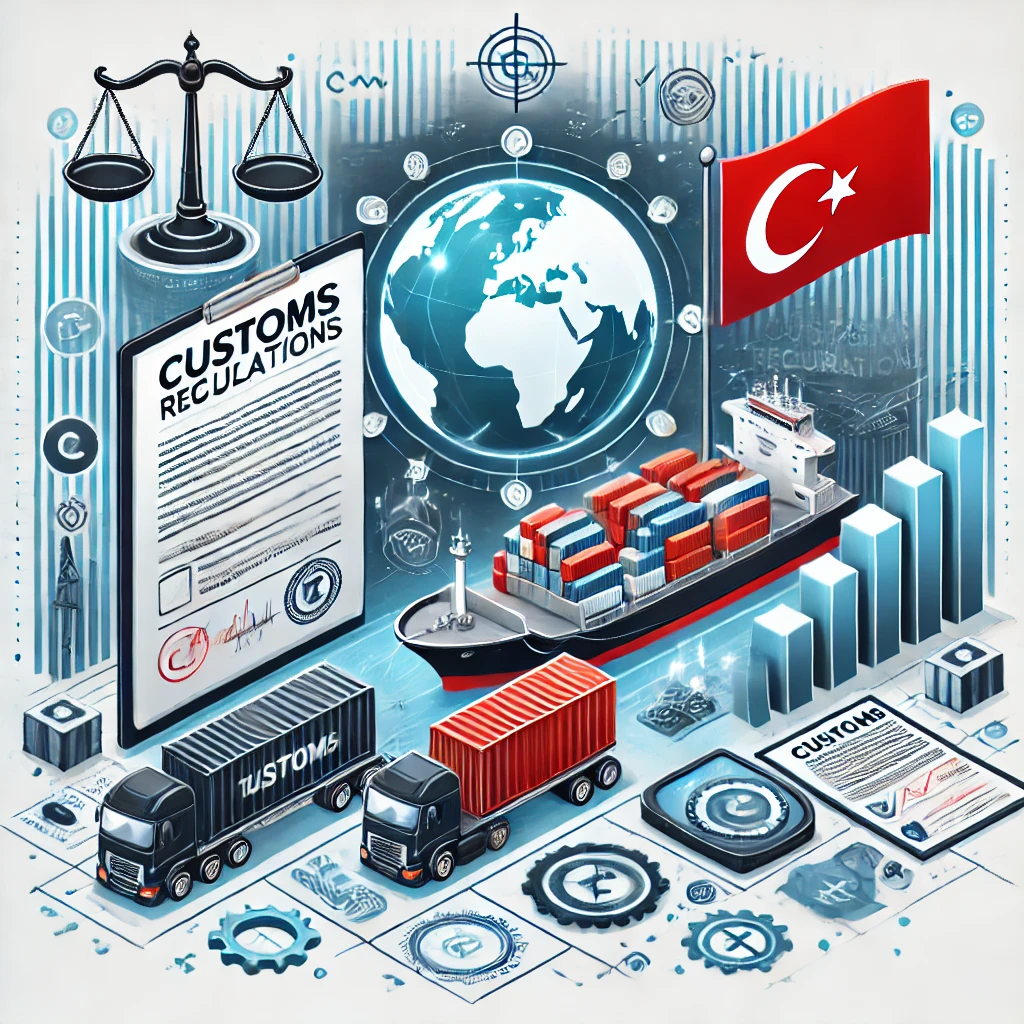Introduction
International trade plays a vital role in economic growth and globalization, requiring seamless processes to move goods across borders efficiently. In Turkey, customs regulations are essential for ensuring that imports and exports comply with both national laws and international trade agreements. This article examines the legal framework governing customs operations in Turkey, explores compliance challenges, and identifies solutions to facilitate international trade in alignment with global standards.
1. Legal Framework Governing Turkish Customs
- Customs Code (Law No. 4458)
- The primary legislation governing customs procedures in Turkey is the Customs Code (Law No. 4458), which establishes rules for customs duties, import/export documentation, and inspections.
- This law is aligned with the EU Customs Union Agreement, meaning Turkey follows EU trade policies for goods but maintains its own rules for agriculture, services, and public procurement.
- Harmonization with International Standards
- Turkey is a member of the World Customs Organization (WCO) and implements the Harmonized System (HS) for classifying goods.
- The country also follows World Trade Organization (WTO) rules, including the Trade Facilitation Agreement (TFA), which aims to streamline customs procedures to promote cross-border trade.
- Customs Union with the European Union
- Since 1996, Turkey has been part of the EU Customs Union, eliminating tariffs for industrial goods between Turkey and EU member states. However, Turkey remains outside the EU’s free trade agreements (FTAs), requiring separate negotiations with third countries.
2. Key Challenges in Customs Compliance
- Complex Documentation Requirements
- Importers and exporters must comply with extensive documentation procedures, including customs declarations, certificates of origin, and health or safety certificates. Errors or omissions can cause delays and financial penalties.
- Frequent Regulatory Changes
- Rapid changes in trade policies and customs regulations create challenges for businesses, which must continuously adapt their operations to stay compliant with new rules.
- Inspection Delays and Bureaucracy
- Goods entering or leaving Turkey are subject to inspections, which can lead to bottlenecks at ports and border crossings. The involvement of multiple agencies further complicates the process, increasing transaction costs.
- Digital Transformation and Gaps in Implementation
- Although Turkey has introduced digital customs platforms, gaps in system interoperability and occasional technical issues affect the efficiency of customs clearance.
3. Efforts to Facilitate International Trade
- Single Window System
- Turkey has implemented a Single Window System to simplify customs procedures by allowing traders to submit all required documents through a single electronic platform. This reduces administrative burdens and improves processing times.
- Authorized Economic Operator (AEO) Program
- The AEO program offers trusted traders benefits such as faster customs clearance and reduced inspections. This initiative aligns Turkey with WCO standards and enhances trade facilitation by promoting supply chain security.
- Free Trade Zones and Incentives
- Turkey operates several free trade zones that offer customs and tax incentives to attract foreign investment. These zones facilitate international trade by providing flexibility in manufacturing, storage, and distribution operations.
- Compliance with the WTO Trade Facilitation Agreement (TFA)
- Turkey actively participates in the WTO TFA, which encourages simpler and more efficient customs procedures. This includes measures to improve transparency, border coordination, and risk management systems.
4. Recommendations for Improving Compliance and Trade Facilitation
- Enhancing Digitalization Efforts
- Turkey can further improve trade facilitation by expanding digital platforms and integrating customs systems with other regulatory agencies to create a seamless clearance process.
- Capacity Building for Businesses and Customs Officials
- Providing training programs for businesses and customs officials on new regulations and compliance requirements can reduce delays and improve the efficiency of trade operations.
- Promoting Regional Trade Agreements
- Turkey can enhance its role in global trade by expanding FTAs and negotiating mutual recognition agreements (MRAs) to facilitate smoother cross-border transactions.
- Risk-Based Inspections
- Implementing risk-based inspection systems can reduce unnecessary delays by focusing resources on high-risk goods while expediting the clearance of low-risk shipments.
Conclusion
Turkey’s customs regulations and compliance processes are critical to facilitating international trade and maintaining alignment with global standards. While challenges remain, such as documentation complexities and inspection delays, initiatives like the Single Window System and the AEO program demonstrate the country’s commitment to streamlining trade operations. Continued investments in digitalization, training, and regional trade agreements will further enhance Turkey’s competitiveness in the global economy, making it an attractive destination for international trade and investment.

Yanıt yok